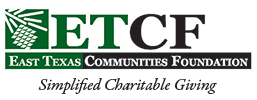As the Trump administration and the 115th Congress begin implementing executive and legislative reforms that their constituents sent them to Washington to enact, the one thing that is certain in the coming days is change. As the recent recipient of a notification that our health insurance premiums will increase 32% this year, I am looking forward to a little change. Hopefully some of the change that is coming will be welcome by many of you as well.
 One of the changes that appears imminent this year in Washington is Federal tax reform. Individuals and businesses are affected in many ways by our complex tax system, so reforms to the system can be expected to impact each of us. Many of us have grown comfortable, or at least familiar, over the last several years and decades with our current tax system and the charitable giving incentives built into it. Knowing that the technicalities and the mechanics of our giving may change with new reforms, it seems beneficial for us to take some time to reflect on the true reasons we give.
One of the changes that appears imminent this year in Washington is Federal tax reform. Individuals and businesses are affected in many ways by our complex tax system, so reforms to the system can be expected to impact each of us. Many of us have grown comfortable, or at least familiar, over the last several years and decades with our current tax system and the charitable giving incentives built into it. Knowing that the technicalities and the mechanics of our giving may change with new reforms, it seems beneficial for us to take some time to reflect on the true reasons we give.
According to the 2016 U.S. Trust Study of High Net Worth Philanthropy, when asked why they give, over 54% of respondents indicated they typically give because they believe in the mission of the organization. Out of 16 possible responses offered in the survey, belief in the mission of the organization elicits the strongest response to the question of why donors give. When combined with those who “sometimes” but not “always” give for this reason, over 97% of respondents cited belief in the mission as the leading motivation for their charitable support. In the nonprofit world it is easy to get caught up in the work, or even overwhelmed by the need, but organizations must understand how critically important it is to clearly articulate and focus on their mission.
The second most important reason, cited 44% of the time as the motivating factor always used by donors, is belief that their gift can make a difference. An additional 50% of respondents cited this as a factor they “sometimes” consider, boosting the overall positive consideration of believing your gift can make a difference to over 94%. As a donor, when faced with multiple charitable options, seek evidence from your favorite charities that they are being good stewards of your resources. Look for stories and statistics that prove your contributions are meeting critical needs and making a difference in the lives of others.
The third most important reason donors give to charity is for personal satisfaction, enjoyment or fulfillment. Over 38% of respondents indicated this was always a motivating factor for them, while another 52% indicated personal satisfaction is sometimes their motivation for giving. There are numerous studies that support the fact that helping others leads to improved self-esteem and that document the brain’s positive response to giving. Other positive motivations for giving include consistently supporting the same organizations year after year, the desire to give back to your community and religious beliefs.
Ranking seventh on the list of survey responses was giving motivated by tax benefits. Only 18% of respondents indicated that tax benefits were “always” a motivating factor for giving, but another 52% indicated that tax benefits are “sometimes” a motivating factor. Charitable giving incentives in our current tax code are significant and could be affected by looming changes, but tax benefits have never been the leading motivating factor for charitable giving. Survey respondents were specifically asked in 2016 if their giving would change if there were no income tax deduction for charitable giving and over 66% of respondents indicated their giving would remain the same or increase. Interestingly, this is a 15% stronger response than when the same question was asked in 2013.
It is hard to predict what changes are coming, but remaining focused on the tangible, local impact of your charitable giving to organizations that remain focused on a clear mission is still your best option for Giving Well.

Recent Comments